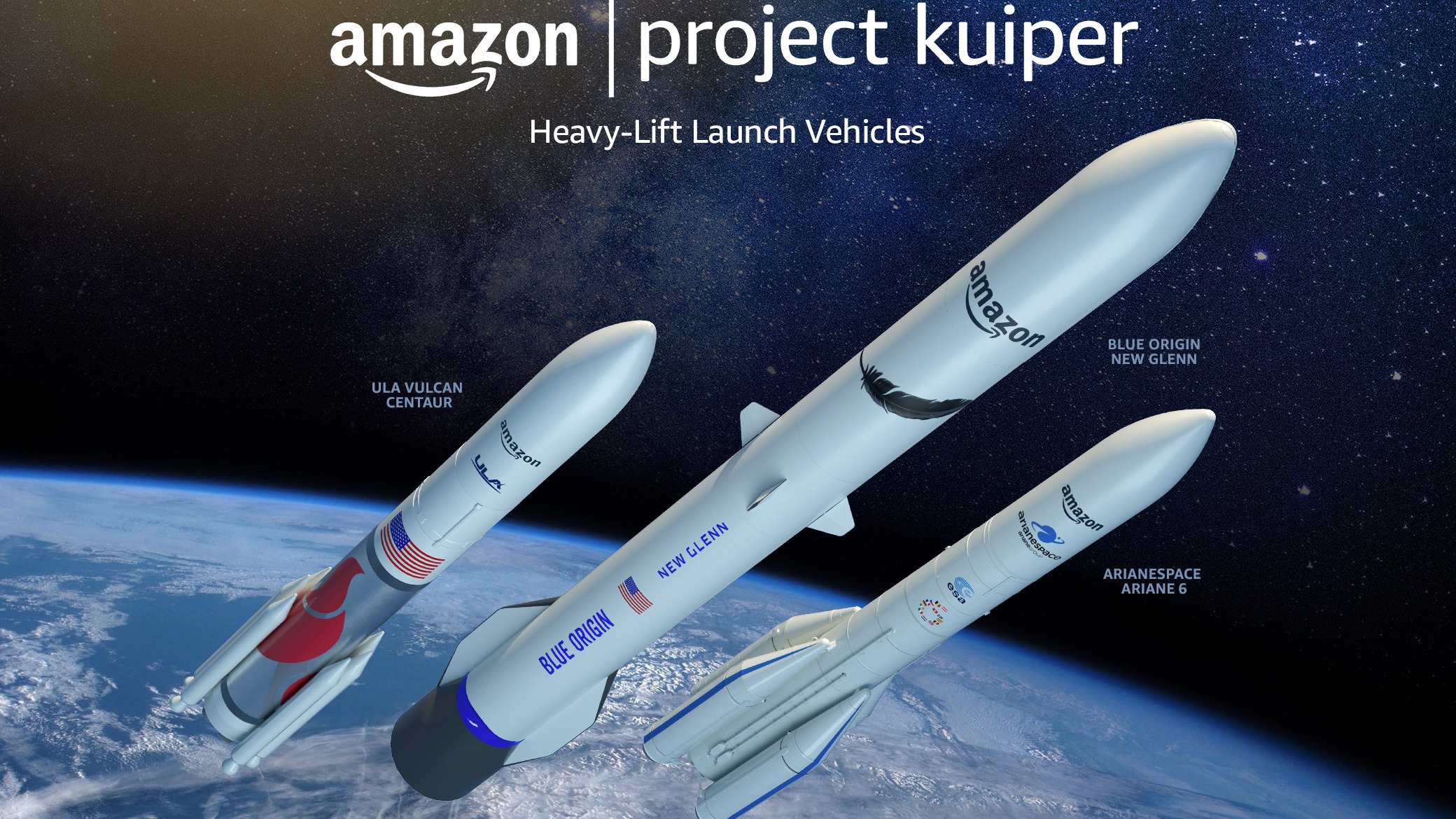Amazon has launched the first pair of prototype satellites for its planned Kuiper internet network.
The two satellites, launched from Cape Canaveral, Florida, are the first of thousands of planned low-earth orbit (LEO) satellites for the internet service planned to rival SpaceX’s Starlink. Amazon has said it plans to deploy 3,236 additional satellites capable of delivering high-speed internet to poorly connected areas, with SpaceX currently operating nearly 5,000 satellites.
Following the launch on Thursday hosted by the Boeing-Lockheed joint venture United Launch Alliance, Amazon said that the two satellites were deployed and its mission operations centre had made contact with them.
Amazon has pledged to invest $10 billion into the Kuiper project announced in 2019, with US Federal Communications Commission requirements necessitating the deployment of half its planned constellation by 2026. The company last year announced a bulk launch deal for 83 launches from various rocket companies including Amazon founder Jeff Bezos’ Blue Origin.
Once established, Kuiper will provide direct competition to Starlink by offering individual consumers and enterprise customers with consumer satellite internet terminals. The Kuiper terminals cost around $400 to the company, though Amazon is yet to announce pricing structure.
Latest News
-
Government announces free AI training to upskill 10m people
-
OpenAI to launch SME accelerator as part of new EU scheme
-
TikTok settles addiction lawsuit hours before landmark trial against social media giants
-
WhatsApp launches lockdown security mode for high-risk users facing sophisticated cyber threats
-
Just Eat latest to launch AI voice assistant
-
Microsoft launches chip to speed up inference workloads in Azure
The future-ready CFO: Driving strategic growth and innovation
This National Technology News webinar sponsored by Sage will explore how CFOs can leverage their unique blend of financial acumen, technological savvy, and strategic mindset to foster cross-functional collaboration and shape overall company direction. Attendees will gain insights into breaking down operational silos, aligning goals across departments like IT, operations, HR, and marketing, and utilising technology to enable real-time data sharing and visibility.
The corporate roadmap to payment excellence: Keeping pace with emerging trends to maximise growth opportunities
In today's rapidly evolving finance and accounting landscape, one of the biggest challenges organisations face is attracting and retaining top talent. As automation and AI revolutionise the profession, finance teams require new skillsets centred on analysis, collaboration, and strategic thinking to drive sustainable competitive advantage.
© 2019 Perspective Publishing Privacy & Cookies


.jpg)






Recent Stories